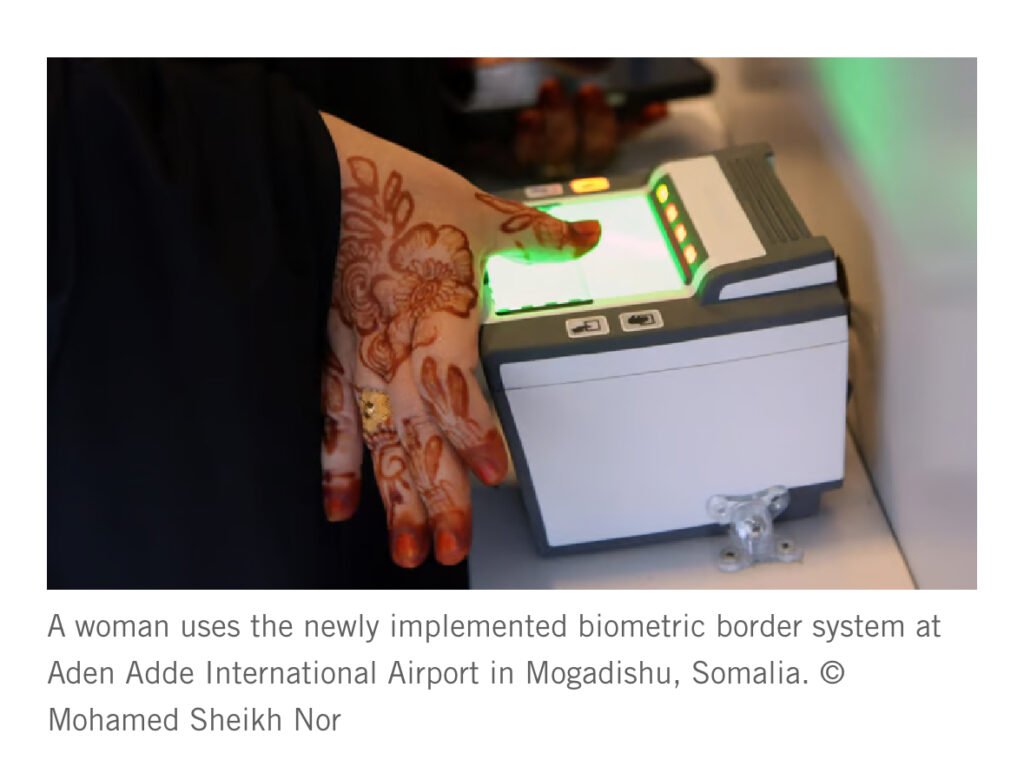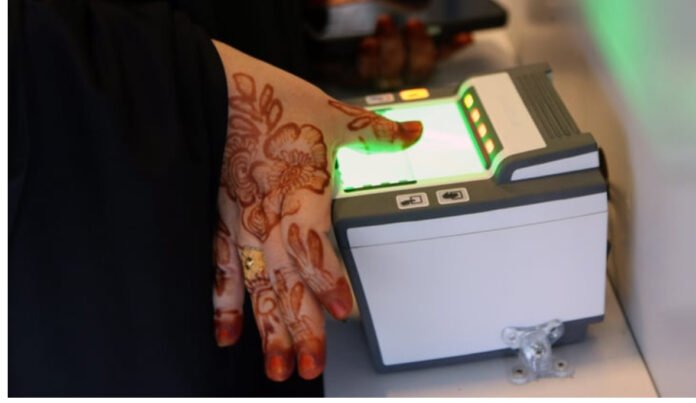Friday, July 4, 2025-HAN
Source: The Africa Report
Somalia has launched a digital border system to fight Al-Shabaab and smuggling, aiming to lift the US visa ban after decades of insecurity.

Somalia has launched a US-backed biometric border system that enables authorities to screen travellers in real time against international watchlists. Designated a ‘terrorist safe haven’ by the US amid a sharp rise in deaths from Al-Shabaab attacks, Somalia is among the countries affected by US President Donald Trump’s new visa ban.
Backed by US technical support, the Personal Identification Secure Comparison and Evaluation System (PISCES) has been installed at all major Somali airports to overhaul the country’s struggling immigration system.
US help to get off visa ban
The system flags fraudulent identities and suspicious travel patterns, helping to streamline the movement of legitimate passengers while enhancing national security.
READ MORE Somalia: President Mohamud’s new party could centralise power, critics warn
“I hope this new approach will take Somalia away from Trump’s travel ban soon when the process is fully functioning,” Mustaf Duhulow, the country’s director-general of immigration and border control, tells The Africa Report in an exclusive interview.
The system features real-time traveller screening technology, including facial recognition, fingerprint reading, and passport scanning connected to local and international watchlists.
Although things have improved and many changes have occurred… I am still a bit worried about security outside
The US embassy in Mogadishu oversaw the rollout through the training of Somali immigration officers in technical skills and by supporting infrastructure improvements. It also played a key advisory role.
The launch comes at a time when the Trumpadministration has enacted travel restrictions affecting Somali nationals, a setback that underscores the need for Somalia to overhaul its migration management system.
“This is the start of something really special in the US-Somalia relationship. We have a lot of work ahead of us and we are focused on working with Somalia to ensure a stable and secure country for its citizens,” said Bob Flannery, the counterterrorism programme adviser for Somalia at the US embassy.
Working in real time
The Africa Report had an opportunity to observe the system in operation during a visit to Aden Adde International Airport in Mogadishu. Immigration officers utilised biometric data in real time, cross-checking against international databases.
Finnish national Shamso Ali says she applied for an e-visa for the first time from her home. “I got my e-visa so fast, and now here I am at the airport with no problems,” she says.
READ MORE Somalia: Battle for Al-Shabaab’s $150m
Originally from Somalia, Shamso is among thousands who fled the country due to war. “It is the first time I have visited Somalia since I fled in 2010, but the scars from those days still linger,” she tells The Africa Report.
“Although things have improved and many changes have occurred, including the sophisticated systems at the airport, I am still a bit worried about security outside, as I came to visit my mother who is here,” she says.
Securing borders still a challenge
Her worries are not unfounded. For years, Somalia’s borders have remained open to exploitation. Poor document checks, bribery and lack of control at key transit points gave leeway to Al-Shabaab.
These enabled the group, classified as terrorists by the US since 2008, to smuggle weapons and illegal commodities, as well as enter the country without checks.
The new digital infrastructure is designed to help change that, according to Ilyas Mohamed, a Somali security analyst. “Even though Somalia is still very much in the mix of troubled nations, its immigration acceptance rates are slowly stabilising,” he says.
READ MORE Somalia’s new stock exchange prepares for 2026 debut
The new biometric system aims to curb smuggling and human trafficking at key border points, including airports, seaports, and overland checkpoints – part of a broader effort to restore migration security, according to government officials.
While the new system marks progress, challenges remain. Al-Shabaab still controls rural areas and corruption within government institutions persists.
However, Duhulow remains optimistic. “The spirit of partnership must endure until we can stand independently. I am confident we will attain that strength with the support of our international partners, including the United States,” he says.





